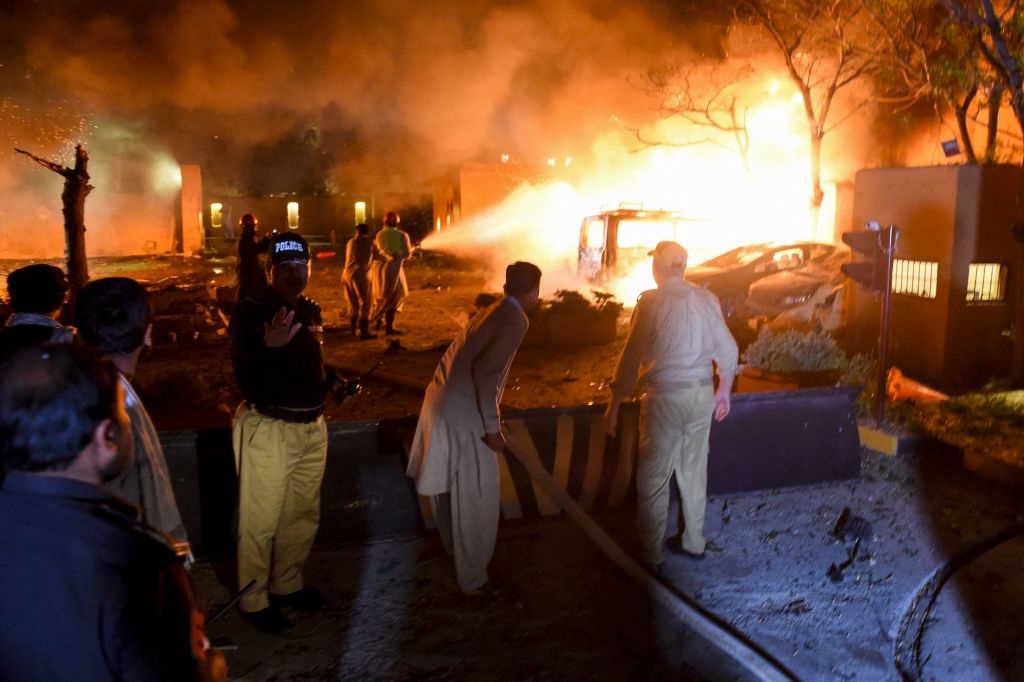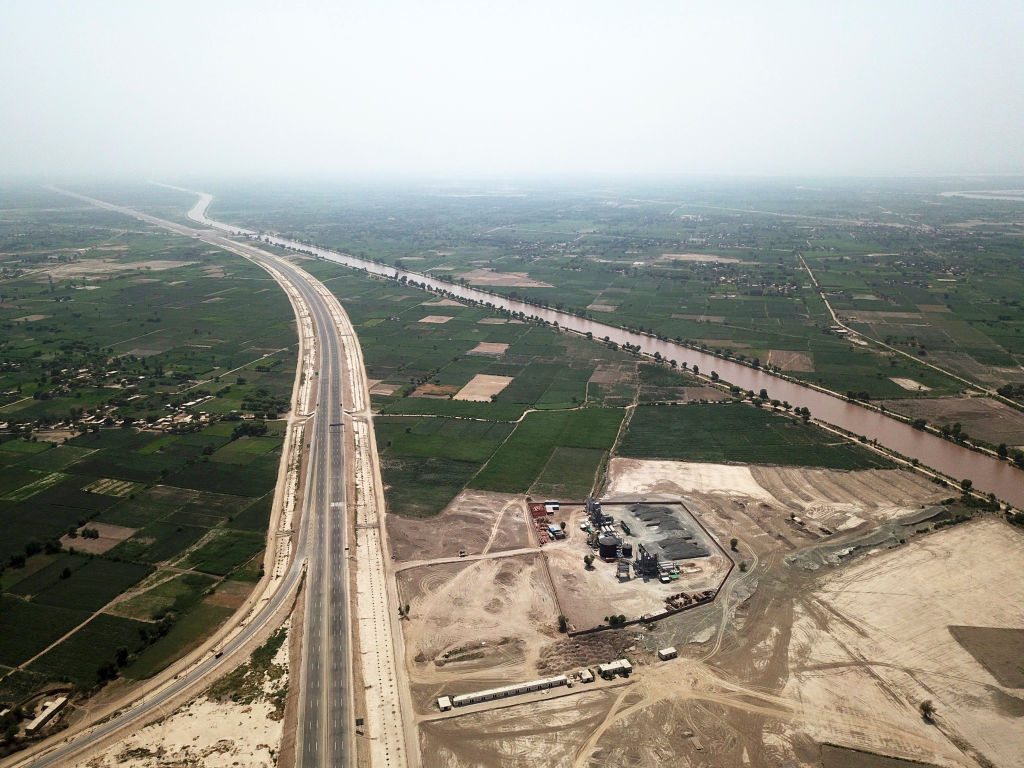
On Tuesday, Chinese President Xi Jinping delivered a online speech at the Bo’ao Forum, touted as Asia’s version of the World Economic Forum at Davos. In it, he once again talked up his signature Belt and Road Initiative (BRI)—a $1 trillion transcontinental trade and infrastructure network—hailing it as a “public road open to all” that will help “create a future of shared benefits.”
A fiery riposte came a day later in the Pakistani city of Quetta, the capital of Balochistan province near the Afghan border, where a suicide bomber blew himself up outside the luxurious Serena Hotel around 10:30pm local time, killing at least 4 and wounding 12.
The Chinese ambassador to Pakistan, Nong Rong, had checked-in to the hotel and was the presumed target, although he was not in the building at the time of the explosion. An “initial probe suggests it was an IED planted in one of the vehicles,” said Azhar Ikram, a senior police official in the city.
Balochistan’s provincial Home Minister Ziaullah Lango told reporters that Nong remained “in high spirits” despite the attack, for which the Pakistani Taliban claimed responsibility. In a statement, China’s Foreign Ministry said “we firmly support Pakistan’s efforts to fight terrorism and safeguard and promote regional peace and stability.”
China is pumping $50 billion into the China-Pakistan Economic Corridor (CPEC). It will provide China with access to the Persian Gulf and, in strategic terms, is possibly the most important single project of the BRI. But the bombing spotlights the harsh reality of a grand global engineering project across some of the world’s most restive territory. Balochistan is home to a bevy of insurgent groups—including Islamists and separatists—who fiercely oppose Chinese infrastructure projects.
At Bo’ao, Xi vowed to “promote a new type of international relations,” widely interpreted as a blueprint for a new world order in which the U.S. role is diminished. Locals are deeply suspicious, however, and accuse Beijing and Islamabad of exploiting Balochistan’s gas and mineral wealth with few jobs or benefits for local people. Two years ago, a Chinese-backed port project at nearby Gwadar—a key BRI project—was attacked by separatists who specifically targeted “Chinese and other foreign investors.”
Keeping the CPEC safe is therefore utmost in the minds of both China and Pakistan, given its enormous importance to both. Several dedicated military units have been assigned to guard the project.
For Pakistan, “It’s as important as defending the border with India,” says Rahimullah Yusufzai, a Pakistani journalist and security analyst who once interviewed Osama bin Laden. “Baloch separatists have publicly declared many times that Chinese workers, engineers and firms are one of their immediate targets. So [Quetta was] not the first attack and it won’t be the last.”

Increasing attacks on China
Any loss of life will reflect badly on a Chinese Communist Party that has long railed against “U.S. adventurism” in the Middle East, especially if it comes at a time when many ordinary Chinese are struggling to fathom why their government is pumping billions into overseas markets.
It may not be just Baloch separatists who want to target Chinese interests. Last month, China inked a deal with Tehran to invest $400 billion over 25 years in exchange for a steady supply of Iranian oil, angering anti-Shia militants in Pakistan. The Pakistani Taliban and Al Qaeda have also released statements condemning China’s treatment of its Uighur Muslim minority, around one million of whom are held in “re-education camps.”
Pakistani Prime Minister Imran Khan has long had close ties with Beijing, praising China’s success in combating severe poverty, while largely ignoring the plight of the Uighurs. But by gaining China’s support and economic help, the Pakistan government has given a broad coalition of anti-establishment groups reason to target Chinese interests, says Samina Yasmeen, director of the Centre for Muslim States and Societies at the University of Western Australia.
“The frequency of such attacks, some sources claim within Pakistan, will increase after the U.S. withdrawal from Afghanistan,” she tells TIME.
And with the U.S. presence in the region set to decrease, China’s regional presence can be expected to swell—paving the way for more conflict.
“Anti-Pakistan forces will try to capitalize on [Washington’s withdrawal],” says Amir Rana, director of the Pak Institute for Peace Studies think-tank in Islamabad. “The violence will go up and, of course, the Chinese will be one of the targets.”
More Must-Reads from TIME
- Cybersecurity Experts Are Sounding the Alarm on DOGE
- Meet the 2025 Women of the Year
- The Harsh Truth About Disability Inclusion
- Why Do More Young Adults Have Cancer?
- Colman Domingo Leads With Radical Love
- How to Get Better at Doing Things Alone
- Michelle Zauner Stares Down the Darkness
Write to Charlie Campbell / Shanghai at charlie.campbell@time.com